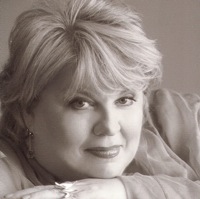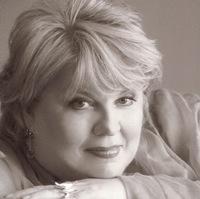
For many in the audience, Sunday’s program, presented by Cal Performances, amounted to a revival of a glorious age of American singing — Brewer’s mere mention of the Voice of Firestone elicited a wistful collective sigh — as well as the opportunity to experience another side of this remarkable singer’s artistry. The St. Louis–born soprano’s San Francisco Opera appearances, as Leonora and Isolde, have capably demonstrated her affinity for the German repertoire, and the first half’s performances of songs by Alban Berg and Richard Strauss were a welcome affirmation. Yet it was in the second half’s traversal of works by American and British composers that Brewer made her most indelible impression.
Throughout the afternoon, Brewer’s strengths — a phenomenally outsized instrument marked by lustrous tone, rich coloration, and laserlike precision — were on magnificent display. A large woman who has been hampered in recent years by knee injuries, Brewer showed marked discomfort in her S.F. Opera performances as Isolde (and in last month’s assumption of the title role ofThe program reached its apex in the second half’s performance of a set that Brewer titled “Echoes of Nightingales,” which began with Sing to Me, Sing by Sidney Homer. The American composer is best-known today as the uncle of Samuel Barber, but Brewer noted that this song was a favorite of Traubel’s. “You can sort of see why these large-voiced women sang these songs,” she said. You could hear why she does, too, for Brewer is the antidote to a latter-day generation of wan-voiced sopranos, and she delivered this song in a gorgeously unfettered outpouring of sound.
The set also included Edwin MacArthur’s Night, which Brewer sang with exquisitely shaded umber tone. In Paul Sargent’s Hickory Hill, which incorporates text by poet Robert Hillyer, Rutenberg’s luminous pianism melded with Brewer’s gently alluring utterance; Frank Bridge’s Love Went a-Riding elicited a firmer, more clipped response. In lesser hands, Idabelle Firestone’s If I Could Tell You would sound saccharine; Brewer made it spontaneous and touchingly forthright. Frank La Forge’s ecstatic ode to nature, Hills, brought the set to an impassioned close.
Dynamic Cabaret Songs
Just as attractive and characterful were Benjamin Britten’s Cabaret Songs, which opened the second half. These works, which set texts by W.H. Auden, were created for the Group Theatre (of which Britten was musical director and resident composer). They are brilliant studies in dynamism: In the opening song, “Calypso,” Brewer deftly negotiated the tempo, tessitura, and idiomatic challenges with considerable aplomb (and an impressive whistle). Brewer caressed the lyric of “Johnny,” about a lover who “went away,” and deployed ironic tone and pointed phrasing for the witty “The Truth About Love” (Rutenberg played the dance-hall piano part with élan). “Funeral Blues,” a setting of Auden’s Stop the Clocks, was a powerhouse.Brewer also excelled in Britten’s The Salley Gardens and The Leprechaun. The composer’s Ye Banks and Braes, arranged by Roger Quilter, was the highlight of the set. Few singers today can capture the “lightsome,” quintessentially British feel of this setting; Brewer can, and does.
The first half’s performances of Berg’s Seven Early Songs drew a rapturous response. Many singers throughout the last century have assayed these fragrant works, redolent of Romantic longing and ecstatic dreams. Brewer, in exquisite voice, relished Berg’s subtle harmonic color, as well as the air of wonted sensuality, and her performance wove a brief but potent spell. Liebesode (Ode to love) came across in a particularly voluptuous reading.
It didn’t seem possible for Brewer to expand from there, but the voice bloomed audibly in the Strauss songs. The soprano’s poetic sensitivity and superhuman breath control came together to particularly gripping effect in Ich liebe dich, in which one lover pledges to join the other in death. Brewer returned to her American roots in the two encores — a tenderly affecting “Mira” from the 1961 Bob Merrill–Michael Stewart musical Carnival, and the American spiritual City Called Heaven. Brewer noted that both recalled her childhood. No wonder. She sounded completely at home in both.

